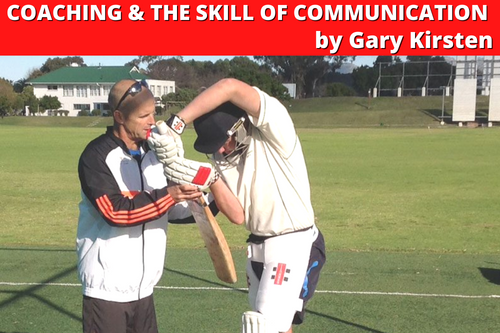The Art of Effective Communication in Coaching by Gary Kirsten
According to my children, their best teachers understand and are aware of the needs of the class and each one of their students. I often ask them, what makes a teacher better than another one – the answer is always the same. They give me a chance to understand the work and they care. My son once told me he learns more, on a particular subject, from his friends in the class than the teacher.
Time..Empathy and Care
Coaching is no different in developing the art of communication– how much do you care about each individual in your team and how good are you at giving each one of your players the best chance to understand and develop their own games. It takes time and requires much empathy and care. Cricket is not an easy game and it takes time for players to truly understand their batting or bowling techniques and what they are good at. There are many stories of young players finding out where their real potential is much later in their school careers when given the opportunity to explore and experiment by the coach.
Skill of Communication
One important coaching skill is communication to the team. These are small moments, usually in the form of team meetings, for a coach to facilitate the learning of the group. These meetings have different outcomes – some are to share information, some are to motivate and inspire and others are to deliver or facilitate performance or practise feedback. Each meeting should be setup to deliver “maximum impact”. How you setup the meeting room or space, how you keep the players engaged, how you facilitate the learning process and how you present yourself in the meeting are all important components of an effective and productive team meeting.
As an example, a simple and very effective match debrief which engages your players and should not take longer than 7 to 8 minutes is the following:
- What did we as a team do well today?
- What did we not do well?
- What could we do differently next time?
- What can we celebrate today?
By doing this, the players get to contribute and give feedback on their own performance and the players will be engaged in the conversation. Too often I watch match debriefs with a coach, emotionally giving feedback, doing all the talking and leaving the players deflated and confused.
Quality team meetings require skill from the coach. In the end the players want to know that you care and they can progress as players in the learning environment you set up for them.
by Gary Kirsten







